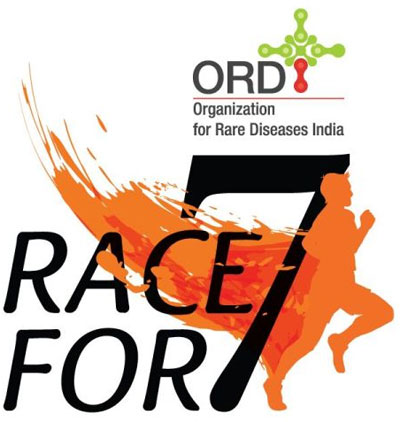June 28 is International Newborn Screening Day. The purpose of newborn screening is to identify conditions which can be treated, especially if caught early, so that affected children can live healthier lives. However, the challenge remains that unfortunately several countries, including India, which recently overtook China as the world’s most populous country, lack a national NBS program
Newborn screening (NBS) is essential for the early detection of diseases that, if not detected, diagnosed and treated early, can have a major impact on the quality of life of newborns and their families. Newborn screening tests are part of multidisciplinary, preventive healthcare programs and are performed on infants during their first two to five days of life to detect markers of genetic, metabolic, endocrinological and hematological (among others) which main symptoms may not be evident at the time of screening.
The Indian scenario
The purpose of newborn screening is to identify conditions which can be treated, especially if caught early, so that affected children can live healthier lives. However, the challenge remains that unfortunately several countries, including India, which recently overtook China as the world’s most populous country, lack a national NBS program.
In the past, standalone pilot NBS programs have been conducted by the state and central authorities in partnership with academia and private organisations. The results showcase the need and viability of a cost-effective screening program that can reduce infant mortality caused by undiagnosed genetic disorders. This is especially important to overcome challenges in detecting rare conditions like inborn errors of metabolism, as most of these disorders do not exhibit clear symptoms early on. In fact, many cases end up being diagnosed several days or even years after birth.
Prasanna Kumar Shirol, Ashoka Fellow, Co-founder and Executive Director of ORDI (Organization for Rare Diseases India) commented, “Newborn screening programs are important health initiatives for a nation’s health. Yet only 5-6 per cent of newborns in India are screened for disorders every year. These programs play a vital role in ensuring the early detection of diseases that can significantly impact the quality of life for newborns and their families. The success of newborn screening programs in other countries serves as evidence of their importance and effectiveness. Early detection is pivotal to preventing serious, life-threatening complications, prompting timely intervention, and helping newborn children having healthier lives. It would be fantastic to see every state formulating a Newborn Screening Policy.”
Criteria for newborn screening
Around 50 years ago, a report titled “Principles and Practice of Screening for Disease,” also known as The Wilson and Jungner criteria, was commissioned by the World Health Organization (WHO). The report outlined a set of principles for evaluating the suitability of a screening test for a particular disease. It provided guidelines for assessing the benefits, harms, and ethical considerations associated with screening programs. It has since been widely regarded as the gold standard for developing NBS programs.[i] Over time, various genetic screening policies have been developed, each employing different criteria. While many of these adapt the original Wilson and Jungner principles, healthcare regulators undertake comprehensive decision-making to understand screening solutions best suited to meet local needs.
Since the introduction of the Guthrie Test for Early Diagnosis of Phenylketonuria, which is more commonly known as the PKU test, there have been many significant advancements in screening technologies. Methods such as ELISA (enzyme-linked immunoassay), electrophoresis, high-performance liquid chromatography (HPLC), and liquid chromatography-mass spectrometry (LCMS) have also been adopted. These allow for the inclusion of a broader range of disorders to be screened in newborns.
Timely detection of critical disorders
It is important to understand the current available tests for newborn screening in the country. In India, NBS aims to identify potential issues in the baby including hearing loss, congenital hypothyroidism, congenital adrenal hyperplasia (CAH), glucose-6-phosphate dehydrogenase (G6PD) deficiency, and several metabolic disorders.[ii]
Shripad Joshi, President, India and South Asia at Revvity said, “Roughly 140 million babies are born worldwide annually, but only 1 in 3 babies receive screening of any kind, and often for only one or two conditions. At Revvity, we are dedicated to advancing neonatal screening with innovative diagnostic solutions, so more newborns around the world can have a healthier start to life. With over 700 million babies having been screened with our technology over the last 25 years, we understand the importance of early detection of life-threatening disorders through newborn screening, as it is the first step towards determining the most effective treatment options for affected babies.”
Screening at the right time is important; for instance, congenital hearing loss must be addressed before the age of 6 months to prevent permanent hearing and speech impairments. Additionally, congenital hypothyroidism is a preventable cause of intellectual disability. Adopting an effective NBS program can help such disorders be identified as early as possible so doctors can intervene and give them appropriate care.
Evidence-backed screening programs have immense potential to enhance public health outcomes. When properly implemented, they can effectively prevent diseases, reduce disabilities, and decrease the infant mortality rate. It is key to raise awareness about the importance of NBS and the conditions it can detect, so more people in India welcome this step towards better health.
For Original article : https://www.expresshealthcare.in/news/the-gift-of-early-detection-all-you-need-to-know-about-newborn-screening/439748/



